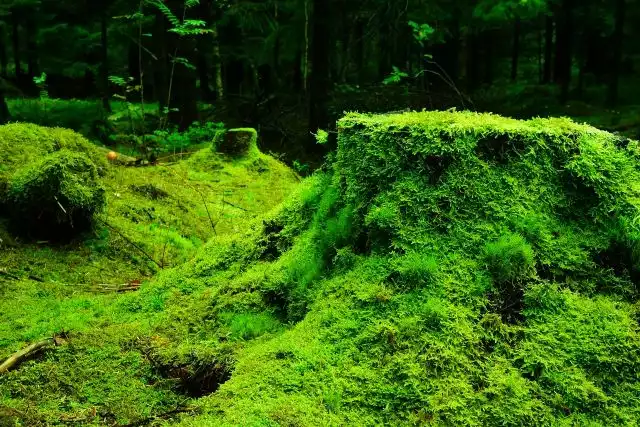Moss that survives deep freeze and radiation could live on Mars

Syntrichia caninervis is widespread in some of Earth’s harshest locations, including Tibet and Antarctica, so Xiaoshuang Li at the Xinjiang Institute of Ecology and Geography in Urumqi, China, and his colleagues decided to subject it to a brutal suite of tests to discover just how much it could survive.
Putting this entirely, the group placed the moss in substitute Martian problems, consisting of an ambience composed of 95 percent carbon dioxide, temperature levels that rose and fall from -60 ° C to 20 ° C, high degrees of UV radiation and reduced air pressure. Even after a week in the simulator, the moss had the ability to completely restore after thirty day.
The researchers found that the moss might regrow after being kept at -80 ° C for 5 years or in fluid nitrogen at -196 ° C for a month. They also bombarded it with doses of gamma radiation and found that as much as 500 Gray systems (Gy) in fact helped the moss restore, while only dosages over 8000Gy triggered extreme damages. A lot of plants can not manage radiation over 500Gy, while 50Gy is enough to cause convulsions and death in humans.
Syntrichia caninervis is widespread in a few of Planet’s toughest places, including Tibet and Antarctica, so Xiaoshuang Li at the Xinjiang Institute of Ecology and Geography in Urumqi, China, and his colleagues decided to subject it to a harsh suite of examinations to uncover simply how much it might make it through.
A hardy moss discovered in desert areas around the globe can endure environmental problems that are deadly to almost all other life types, recommending maybe the initial possible pioneer species for the colonisation of Mars.
Sharon Robinson at the University of Wollongong, Australia, claims that although the plant might endure, it isn’t totally clear why we would want to take the moss to Mars. “We can not consume them, although if they were photosynthesising they could be able to make a little bit of oxygen,” she states. Additionally, the moss could be a home for tardigrades, a similarly hardy varieties.
“If there is one plant that can residing on Mars, it is that moss,” he claims. Eldridge believes, however, that human beings can take them to Mars put them externally and they would remain to be alive, but barely. “It might make it through, however I doubt it would certainly prosper,” he states.
David Eldridge at the College of New South Wales in Sydney, Australia, states that if the moss is to genuinely grow, it will eventually need some remedy for severe chilly and desiccation, but on Mars, unlike Planet, such problems are unrelenting.
1 percent carbon dioxide2 reduced air pressure
3 substitute Martian problems
« ‘The beauty of symbolic equations is that it’s much easier to … see a problem at a glance’: How we moved from words and pictures to thinking symbolicallyHow powdered rock could help slow climate change »
